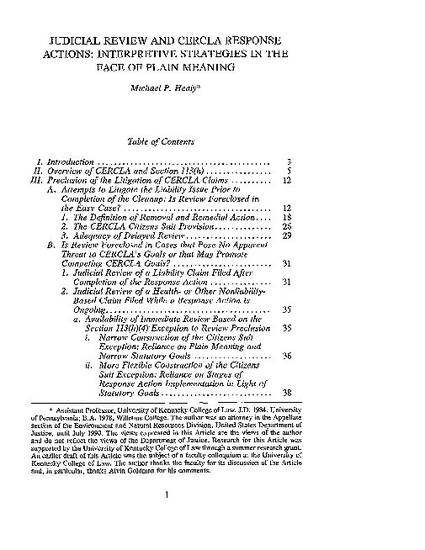
This Article examines the role courts play under the Comprehensive Environmental Response, Compensation, and Liability Act (“CERCLA”) in cleaning up releases of hazardous substances. Congress intended the courts to have an important role in implementing the cleanup process-particularly in defining the scope of liability for CERCLA cleanups. But Congress also included a broadly-worded provision that forecloses federal judicial review of CERCLA cleanups unless the review action falls within several narrowly-defined exceptions.
Notwithstanding the terms of the provision foreclosing review, litigants have turned to the courts, asserting that immediate review should be available in cases beyond those exceptional proceedings. Those asserting a need for immediate review rely on a number of theories grounded either in the language of CERCLA and its policies, or in the terms and policies of other statutes, or in the Constitution. In response to these claims, courts have applied CERCLA's categorical limits on review to particular cases with greatly varying outcomes.

Harvard Environmental Law Review, Vol. 17, No. 1 (1993), pp. 1-95.